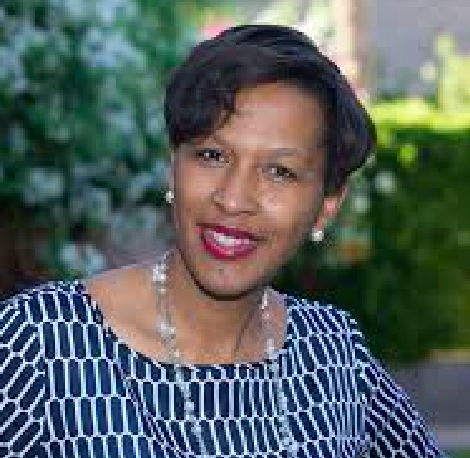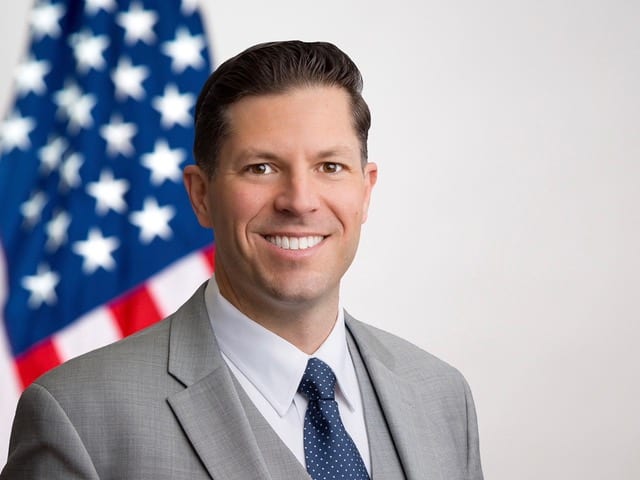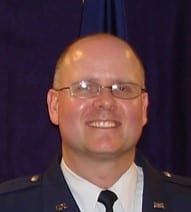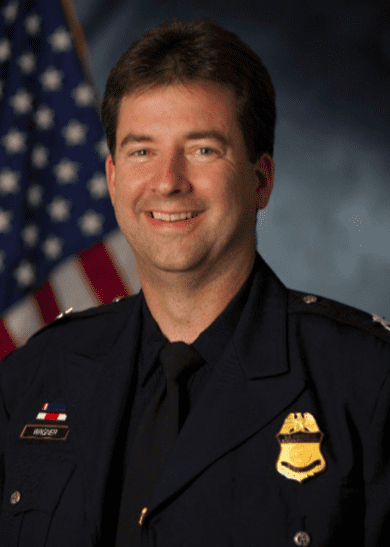 Renee Forney
As the Senior Director of Cyber Assurance at Capital One, Renee Forney leads the cyber governance and risk management portfolio activities in alignment with the Three Lines of Defense. This includes Third Party and Supply Chain Management, Customer Authentication, PCI and Governance and Risk. Created and executed Cyber Assurance strategies that align with regulatory guidance, industry best practices and threat intelligence to increase effective and efficient service delivery.
Renee Forney is currently the CEO of the Forney Group LLC, a strategic consulting firm focusing on Enterprise Risk Management, Cyber Threat Intelligence and Cyber Workforce, as well as the Executive Managing Director of Global Cyber Security Management at Equinoxys Inc.
Mrs. Forney previously served as Deputy Chief Information Officer (DCIO) for Cybersecurity and Enterprise Operations, where she was responsible for managing the Department of Energy’s (DOE) Enterprise Cybersecurity Program and IT Infrastructure; advising Departmental senior officials on integrating cybersecurity; risk management; and implementing enterprise information resources management across the DOE. Mrs. Forney provided executive-level guidance for the interagency on cybersecurity initiatives; including the White House’s Cybersecurity National Action Plan, the Defense Industrial Base Sector (for information safeguarding and critical infrastructure protection) and the NICE Interagency Coordinating Council lead by the NIST.
Prior to serving as DOE, Mrs. Forney was the Department of Homeland Security’s (DHS) Executive Director for the Cyber Skills Management Support Initiative, where she was responsible for managing cybersecurity-related projects for the Undersecretary of Management. She led a collaborative effort to design an organization to strategically address and manage DHS cybersecurity workforce issues affecting DHS Components execution of cyber mission to include USSS, TSA, CBP, USCG, ICE-HSI and NPPD. In this role, she developed the Cyber Management Support Initiative Push Button, which assists hiring managers and human resource professionals. in accurately defining job descriptions for cyber professionals. In conjunction with the Push Button initiative, her efforts were instrumental in developing legislation and the Federal Cyber Security Workforce Strategy Plan. She also spearheaded the Cyber Student Volunteer Initiative which placed cyber students in DHS field offices and Fusion centers across the country.
Mrs. Forney also served as the Branch Chief for the General Services Administration’s (GSA) Business Intelligence Division, where she developed innovative enterprise solutions such as the FAStoday Portal, and led the digital information efforts for the 2008 U.S. Presidential Transition Team.
Mrs. Forney also held a variety of information assurance and technology roles in the private sector, including Division Program Manager for Unisys, and Senior Security Analyst for Telos. Notable accomplishments from this time include managing collaboration with the Unisys Director of Enterprise Security Initiatives, United Kingdom, and supporting the development of a security framework model for Unisys Federal.
Mrs. Forney holds a Bachelor of Science from DeVry University and a Master of Science in Engineering Management from George Washington University. She also holds an honorary Doctorate Degree of Science and Technology from Champlain College. She was also named a 2016 Women of Influence by SC Magazine and ACT-IAC Igniting Innovation award winner. She is a Certified Information System Security Professional (CISSP), Shared Assessments Certified Third Party Risk Professional (CTPRP) and has held the Project Management Professional (PMP) certification.
Renee Forney
As the Senior Director of Cyber Assurance at Capital One, Renee Forney leads the cyber governance and risk management portfolio activities in alignment with the Three Lines of Defense. This includes Third Party and Supply Chain Management, Customer Authentication, PCI and Governance and Risk. Created and executed Cyber Assurance strategies that align with regulatory guidance, industry best practices and threat intelligence to increase effective and efficient service delivery.
Renee Forney is currently the CEO of the Forney Group LLC, a strategic consulting firm focusing on Enterprise Risk Management, Cyber Threat Intelligence and Cyber Workforce, as well as the Executive Managing Director of Global Cyber Security Management at Equinoxys Inc.
Mrs. Forney previously served as Deputy Chief Information Officer (DCIO) for Cybersecurity and Enterprise Operations, where she was responsible for managing the Department of Energy’s (DOE) Enterprise Cybersecurity Program and IT Infrastructure; advising Departmental senior officials on integrating cybersecurity; risk management; and implementing enterprise information resources management across the DOE. Mrs. Forney provided executive-level guidance for the interagency on cybersecurity initiatives; including the White House’s Cybersecurity National Action Plan, the Defense Industrial Base Sector (for information safeguarding and critical infrastructure protection) and the NICE Interagency Coordinating Council lead by the NIST.
Prior to serving as DOE, Mrs. Forney was the Department of Homeland Security’s (DHS) Executive Director for the Cyber Skills Management Support Initiative, where she was responsible for managing cybersecurity-related projects for the Undersecretary of Management. She led a collaborative effort to design an organization to strategically address and manage DHS cybersecurity workforce issues affecting DHS Components execution of cyber mission to include USSS, TSA, CBP, USCG, ICE-HSI and NPPD. In this role, she developed the Cyber Management Support Initiative Push Button, which assists hiring managers and human resource professionals. in accurately defining job descriptions for cyber professionals. In conjunction with the Push Button initiative, her efforts were instrumental in developing legislation and the Federal Cyber Security Workforce Strategy Plan. She also spearheaded the Cyber Student Volunteer Initiative which placed cyber students in DHS field offices and Fusion centers across the country.
Mrs. Forney also served as the Branch Chief for the General Services Administration’s (GSA) Business Intelligence Division, where she developed innovative enterprise solutions such as the FAStoday Portal, and led the digital information efforts for the 2008 U.S. Presidential Transition Team.
Mrs. Forney also held a variety of information assurance and technology roles in the private sector, including Division Program Manager for Unisys, and Senior Security Analyst for Telos. Notable accomplishments from this time include managing collaboration with the Unisys Director of Enterprise Security Initiatives, United Kingdom, and supporting the development of a security framework model for Unisys Federal.
Mrs. Forney holds a Bachelor of Science from DeVry University and a Master of Science in Engineering Management from George Washington University. She also holds an honorary Doctorate Degree of Science and Technology from Champlain College. She was also named a 2016 Women of Influence by SC Magazine and ACT-IAC Igniting Innovation award winner. She is a Certified Information System Security Professional (CISSP), Shared Assessments Certified Third Party Risk Professional (CTPRP) and has held the Project Management Professional (PMP) certification.
 Brian Harrell
Brian currently serves as the Vice President and Chief Security Officer (CSO) at AVANGRID, an energy company with assets and operations in 24 states. He is responsible for the companies physical and cybersecurity, security compliance, enterprise risk governance, and fire protection units. In 2018, Brian was appointed by the President of the United States to serve as the sixth Assistant Secretary for Infrastructure Protection, at the Department of Homeland Security. Brian also served as the first Assistant Director for Infrastructure Security at the U.S. Cybersecurity and Infrastructure Security Agency (CISA). Brian has spent time during his career in the US Marine Corps and various private sector agencies with the goal of protecting the United States from security threats.
Brian Harrell
Brian currently serves as the Vice President and Chief Security Officer (CSO) at AVANGRID, an energy company with assets and operations in 24 states. He is responsible for the companies physical and cybersecurity, security compliance, enterprise risk governance, and fire protection units. In 2018, Brian was appointed by the President of the United States to serve as the sixth Assistant Secretary for Infrastructure Protection, at the Department of Homeland Security. Brian also served as the first Assistant Director for Infrastructure Security at the U.S. Cybersecurity and Infrastructure Security Agency (CISA). Brian has spent time during his career in the US Marine Corps and various private sector agencies with the goal of protecting the United States from security threats.
 Mo McGowan
Mo McGowan was instrumental standing up critical components of the Transportation Security Administration serving as Assistant Administrator,
Office of Security Operations; Deputy Assistant; Administrator for Operations; and General Manager, Cargo and Supply Chain Security. Currently he works as a Senior Advisor at the Command Group.
Mo McGowan
Mo McGowan was instrumental standing up critical components of the Transportation Security Administration serving as Assistant Administrator,
Office of Security Operations; Deputy Assistant; Administrator for Operations; and General Manager, Cargo and Supply Chain Security. Currently he works as a Senior Advisor at the Command Group.
 Elizabeth Neumann
Elizabeth Neumann served as the Assistant Secretary for Threat Prevention and Security Policy in the Office of Strategy, Policy, and Plans. She oversees Department of Homeland Security (DHS) –wide policy development and coordination for screening and vetting, terrorism prevention, counterterrorism, countering transitional criminal organizations, and other persistent and emerging threats. She was also responsible for two operational programs- Visa Waiver Program and the REAL ID Program. Ms. Neumann worked closely with other federal departments and agencies, states, and international counterparts to develop, coordinate, and implement these policies and programs. Prior to this role, Ms. Neumann served as the Deputy Chief of Staff of the Department, where she assisted in the management of the day-to-day operations of DHS and served as a senior advisor to Secretaries Kelly and Nielsen, as well as Acting Secretary Duke.
Ms. Neumann’s work in the homeland security enterprise began just prior to the founding of the DHS in 2003, where she served on the Homeland Security Council at The White House. As part of the White House’s Domestic Counterterrorism Directorate, she tracked terrorist threats and developed domestic prevention and mitigation strategies and programs. She also coordinated the development and implementation of the Federal Government’s post-9/11 terrorism information sharing strategies and policies, including the architecture through which the Federal Government shares information with state and local governments.
Later, in support of the Office of the Director of National Intelligence, Ms. Neumann worked with the Departments of Justice and Homeland Security to develop the protocols for reporting suspicious activity and she developed one of the early community-based models for countering violent extremism.
Over the past 15 years, she has created and implemented multiple government-wide counterterrorism policies and reforms. She has extensive experience working across multiple homeland security and national security disciplines including: intelligence, law enforcement, emergency management, preparedness, critical infrastructure security and resilience, and cybersecurity. Her expertise includes threat and risk trend analysis; assessing, developing, and executing security doctrine, strategy, policy, and plans; and optimizing organizational development to address emerging risks.
Elizabeth Neumann
Elizabeth Neumann served as the Assistant Secretary for Threat Prevention and Security Policy in the Office of Strategy, Policy, and Plans. She oversees Department of Homeland Security (DHS) –wide policy development and coordination for screening and vetting, terrorism prevention, counterterrorism, countering transitional criminal organizations, and other persistent and emerging threats. She was also responsible for two operational programs- Visa Waiver Program and the REAL ID Program. Ms. Neumann worked closely with other federal departments and agencies, states, and international counterparts to develop, coordinate, and implement these policies and programs. Prior to this role, Ms. Neumann served as the Deputy Chief of Staff of the Department, where she assisted in the management of the day-to-day operations of DHS and served as a senior advisor to Secretaries Kelly and Nielsen, as well as Acting Secretary Duke.
Ms. Neumann’s work in the homeland security enterprise began just prior to the founding of the DHS in 2003, where she served on the Homeland Security Council at The White House. As part of the White House’s Domestic Counterterrorism Directorate, she tracked terrorist threats and developed domestic prevention and mitigation strategies and programs. She also coordinated the development and implementation of the Federal Government’s post-9/11 terrorism information sharing strategies and policies, including the architecture through which the Federal Government shares information with state and local governments.
Later, in support of the Office of the Director of National Intelligence, Ms. Neumann worked with the Departments of Justice and Homeland Security to develop the protocols for reporting suspicious activity and she developed one of the early community-based models for countering violent extremism.
Over the past 15 years, she has created and implemented multiple government-wide counterterrorism policies and reforms. She has extensive experience working across multiple homeland security and national security disciplines including: intelligence, law enforcement, emergency management, preparedness, critical infrastructure security and resilience, and cybersecurity. Her expertise includes threat and risk trend analysis; assessing, developing, and executing security doctrine, strategy, policy, and plans; and optimizing organizational development to address emerging risks.
 Mitchell Simmons
Dr. Mitchell E. Simmons, Lieutenant Colonel, United States Air Force (Retired) is the Associate Dean for Academic Affairs and Program Director in the Anthony G. Oettinger School of Science and Technology Intelligence at the National Intelligence University in Bethesda, Maryland. Dr. Simmons oversees three departments consisting of five concentrations—Emerging Technologies and Geostrategic Resources; Information & Influence Intelligence; Weapons of Mass Destruction; Cyber Intelligence; and Data Science Intelligence. He teaches courses in Intelligence Collection, National Security Policy and Intelligence, and Infrastructure Assessment Vulnerability, the latter course being part of a Homeland Security Intelligence Certificate program popular with students from the Department of Homeland Security. Dr. Simmons has over 25 years of experience in acquisition, engineering, and program management within key agencies to include National Reconnaissance Office, Defense Threat Reduction Agency (DTRA), and multiple tours with the Defense Intelligence Agency. His technical expertise includes physical and functional vulnerability of critical infrastructure from conventional explosives, nuclear, ground forces, and asymmetric threats, such as infectious disease. Dr. Simmons’ niche expertise is the exploitation of hard and deeply buried targets and he has personally collected intelligence in dozens of strategic facilities. Dr. Simmons is widely published in the classified and unclassified realm and his products have seen diverse readership, to include the national command authority and combatant commands. He is the author of the definitive DoD manual, published by DTRA, “Hard Target Field and Assessment Reference Manual” used to educate those on this strategic target set. Dr. Simmons holds a B.S. and M.S. in Mechanical Engineering from Ohio University, a M.S. from Central Michigan University, and a Ph.D. in Engineering Management from The Union Institute and University.
Mitchell Simmons
Dr. Mitchell E. Simmons, Lieutenant Colonel, United States Air Force (Retired) is the Associate Dean for Academic Affairs and Program Director in the Anthony G. Oettinger School of Science and Technology Intelligence at the National Intelligence University in Bethesda, Maryland. Dr. Simmons oversees three departments consisting of five concentrations—Emerging Technologies and Geostrategic Resources; Information & Influence Intelligence; Weapons of Mass Destruction; Cyber Intelligence; and Data Science Intelligence. He teaches courses in Intelligence Collection, National Security Policy and Intelligence, and Infrastructure Assessment Vulnerability, the latter course being part of a Homeland Security Intelligence Certificate program popular with students from the Department of Homeland Security. Dr. Simmons has over 25 years of experience in acquisition, engineering, and program management within key agencies to include National Reconnaissance Office, Defense Threat Reduction Agency (DTRA), and multiple tours with the Defense Intelligence Agency. His technical expertise includes physical and functional vulnerability of critical infrastructure from conventional explosives, nuclear, ground forces, and asymmetric threats, such as infectious disease. Dr. Simmons’ niche expertise is the exploitation of hard and deeply buried targets and he has personally collected intelligence in dozens of strategic facilities. Dr. Simmons is widely published in the classified and unclassified realm and his products have seen diverse readership, to include the national command authority and combatant commands. He is the author of the definitive DoD manual, published by DTRA, “Hard Target Field and Assessment Reference Manual” used to educate those on this strategic target set. Dr. Simmons holds a B.S. and M.S. in Mechanical Engineering from Ohio University, a M.S. from Central Michigan University, and a Ph.D. in Engineering Management from The Union Institute and University.
 Dr. John P. Sullivan
Dr. John P. Sullivan served as a lieutenant with the Los Angeles Sheriff’s Department; specializing in emergency operations, transit policing, counterterrorism and intelligence. He is an Instructor in the Safe Communities Institute (SCI) at the Sol Price School of Public Policy - University of Southern California, Global Fellow at Stratfor, Senior El Centro Fellow at Small Wars Journal, and Member of the Scientific Advisory Board of the Global Observatory of Transnational Criminal Networks. In addition, he is a member of The InterAgency Board for Emergency Preparedness and Response. His doctoral dissertation at the Open University of Catalonia examined the impact of transnational crime on sovereignty. His current research focus is terrorism, transnational gangs and organized crime, conflict disaster, intelligence studies, post-conflict policing, sovereignty and urban operations.
Dr. John P. Sullivan
Dr. John P. Sullivan served as a lieutenant with the Los Angeles Sheriff’s Department; specializing in emergency operations, transit policing, counterterrorism and intelligence. He is an Instructor in the Safe Communities Institute (SCI) at the Sol Price School of Public Policy - University of Southern California, Global Fellow at Stratfor, Senior El Centro Fellow at Small Wars Journal, and Member of the Scientific Advisory Board of the Global Observatory of Transnational Criminal Networks. In addition, he is a member of The InterAgency Board for Emergency Preparedness and Response. His doctoral dissertation at the Open University of Catalonia examined the impact of transnational crime on sovereignty. His current research focus is terrorism, transnational gangs and organized crime, conflict disaster, intelligence studies, post-conflict policing, sovereignty and urban operations.
 John Wagner
John P. Wagner became Deputy Executive Assistant Commissioner, Office of Field Operations (OFO), on April 6, 2014. He has been assigned to U.S. Customs and Border Protection (CBP) at Headquarters in Washington DC since 1999, and has worked on numerous policy and operational issues.
Mr. Wagner has been a leader in developing many of OFO’s successful business transformation efforts. These include the deployment of the internationally acclaimed Global Entry program and the Automated Passport Control kiosks for international travelers.
OFO includes nearly 29,000 employees with more than 22,000 CBP Officers and CBP Agriculture Specialists that protect U.S. borders. An annual operating budget of $3.2 billion provides for operations at 328 ports of entry, and many programs that support the national security, immigration, customs, and commercial trade-related missions of CBP.
A native of Long Island, NY, Mr. Wagner graduated from the State University of New York at Albany, with a Bachelors of Arts degree in Psychology. He began his Federal law enforcement career in 1991 when he joined the U.S. Customs Service as a Customs Inspector.
Mr. Wagner worked at the New York/New Jersey seaport and the Port of Laredo, TX before being assigned to Headquarters. He is a graduate of the Senior Executive Fellows course at the JFK School of Government at Harvard University.
John Wagner
John P. Wagner became Deputy Executive Assistant Commissioner, Office of Field Operations (OFO), on April 6, 2014. He has been assigned to U.S. Customs and Border Protection (CBP) at Headquarters in Washington DC since 1999, and has worked on numerous policy and operational issues.
Mr. Wagner has been a leader in developing many of OFO’s successful business transformation efforts. These include the deployment of the internationally acclaimed Global Entry program and the Automated Passport Control kiosks for international travelers.
OFO includes nearly 29,000 employees with more than 22,000 CBP Officers and CBP Agriculture Specialists that protect U.S. borders. An annual operating budget of $3.2 billion provides for operations at 328 ports of entry, and many programs that support the national security, immigration, customs, and commercial trade-related missions of CBP.
A native of Long Island, NY, Mr. Wagner graduated from the State University of New York at Albany, with a Bachelors of Arts degree in Psychology. He began his Federal law enforcement career in 1991 when he joined the U.S. Customs Service as a Customs Inspector.
Mr. Wagner worked at the New York/New Jersey seaport and the Port of Laredo, TX before being assigned to Headquarters. He is a graduate of the Senior Executive Fellows course at the JFK School of Government at Harvard University.
Go to
Top